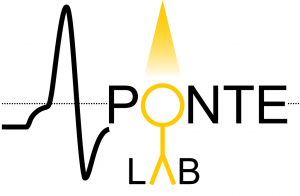 A division of the Cellular and Neurocomputational Systems Branch
A division of the Cellular and Neurocomputational Systems Branch
Section Chief
Contact
Location:
Biomedical Research Center
251 Bayview Boulevard
Suite 200, Room 07A707
Baltimore, MD 21224
Phone: 667-312-5015
Email: yeka.aponte@nih.gov
About the Lab
The Aponte Lab uses a combination of optogenetics, chemogenetics, electrophysiology, two- and single-photon fluorescence endomicroscopy, and behavioral assays to elucidate the neuronal basis of survival behaviors (i.e. feeding and pain) and to determine how these neuronal circuits drive the rewarding and addictive nature of food intake and drugs of abuse. Our research involves experiments to measure and manipulate genetically-defined cell types during behavior to identify key elements of the feeding-reward circuits. We combine our behavioral and cell type analyses to develop models of circuits for survival behaviors and to determine how these circuits dysfunction in addiction.

